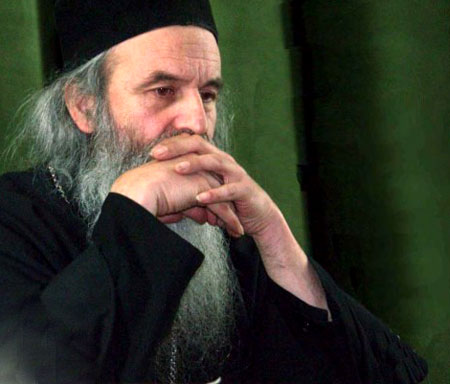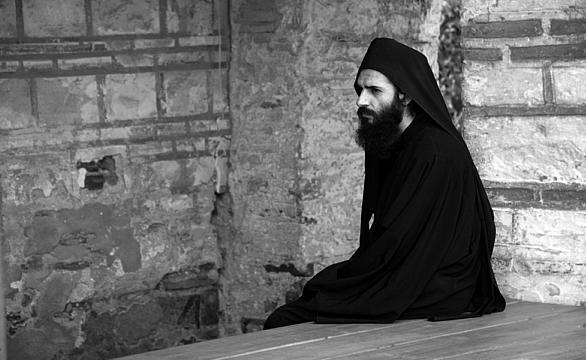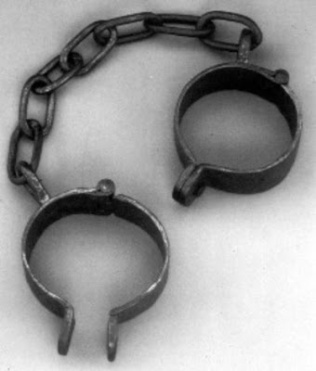
An admonishing epistle on our relationships with our neighbour and on the meaning of sorrows.
By monk Markellos Karakallinos
Nothing makes the way for the approach of God easier as does the mercy that is offered from the depth of the soul for those who are in need. The Lord said: "Inasmuch you did it to one of the least of my brothers, you did it to me" (Matt 25:40).
The one who heals the needs of the others like God, imitates God, through philanthropy and demonstrates that he bears within himself in analogy with God, the power of providence for the salvation of his brother.
Who therefore is so indifferent that does not wish to be like God, in other words, wishing to approach that which is in His likeness while the manner of doing good and of sympathy towards his neighbor is so easy? Without compassion and love towards the neighbor, no virtue can remain undefiled.
Let us learn the habit of observing and examining only ourselves, and never bother ourselves with the actions of the others. We should recognize only one judge, wise and just, the Holy God, who judges with wisdom and justice, everything that happened and even for the reason they happened.
Let us limit ourselves by severing every connection to the external and not allow our eye to see, nor our ear to hear, not even the tongue to talk about the things of others. Let us use more sympathy than empathy towards others.
Let us listen to the divine preacher Paul who advises us: "I beg you to behave with all humility and meekness, and longsuffering, forbearing one another in love" (Eph 4:2). "If therefore different and varied gifts and not the same were given to others, there should be absolutely no reason that this distribution should be the cause of enmity between you. For this distribution was not done by chance but was done by Christ Himself. "But for every one of us is given grace according to the measure of the gift of Christ" (Eph 4:7).
"Put away the old man of your earlier way of life who is corrupted by the deceitful lusts and be renewed in the spirit of your mind and put on the new man who is created according to God in the holiness of truth" (Eph 4:22-24). For if we endeavour this with ourselves then we shall succeed "that we walk worthy of God who calls us to His Kingdom and glory" (1Thess 2:12)
Holy God grants us His grace, but we have to recognize that whatever good we may do it is not done by us but by God. We must sympathize with the one who lacks and do not believe that he is a sinner, such as lazy, evil, chatterer, thief, liar. If we acquire this awareness, we shall never criticize anyone even when we see him sinning mortally.
We shall think thus: "He does not have Your grace my Christ that is why he sins. If you leave me, I too will do the same and even worse. You help me and I can stand on my feet. The brother sees that much and he does that much".
You ask from your brother what God has not given him. If you'll understand well what I tell you, everybody will not be responsible but only you. If you therefore wish your neighbour to be always good as it pleases you, remove his offenses with the grace (gifts) you have.....".
"It is just to pray for God to remove his offences so that he may see and act correctly. If however you will ask differently to receive your justice, you will appear unjust and would be necessary therefore for the gift (grace) to keep going back and forth until it finds comfort in your soul. For that much grace one is entitled to have as he agreeably endures the offense. As much weight your neighbor patiently bears (Elder Joseph the Spiliote).
Other faster way does not exist for one to persist in the offences that visit us whatever they may be.
The spiritual condition of a person and the grace he possesses is demonstrated by the patience he has. The proof of the existence of this virtue is the tolerance, longsuffering, patience. These are the jewels of every struggling Christian.
For this, my dear soul, during periods you struggle and get burnt by the fire of sin, do not fall asleep, do not neglect to struggle and hope on the non-combative power of God with which you will put out the fire of sin, overcoming thus the devil. Sing with joy and contentment together with the melodic Theodore Studite: "With Your right hand oh Word protect me, that the fire of sin not burn me" (5th antiphone, 1st tone).
You should know that the devil is useful to all of us, if we use him appropriately. He owes us a lot and we succeed from him not with small profit, as happened with the just Job.
If you do not become negligent and if you do not betray yourself, neither could the devil harm you. The weak becomes harmed everywhere while the strong benefits everywhere. For the spiritual inclination is always very important and man's intention always succeeds.
Let us therefore not blame the responsibilities of our sins on the devil nor on others. What is appropriate for us to do? To do just this. To introspect ourselves and our wounds for then we shall be able to apply the medicine necessary for our healing, for he who ignores his disease will not tend to his healing.
Holy Chrysostom prompts us to bless those that disturb us and to consider them benefactors and not curse them as enemies. "This we should always consider that the one who blesses his enemy blesses himself and he who curses the enemy curses himself and the one who prays for the enemy prays for himself and not him".
Elianos praised the tax collectors of Sparta because they did not revenge the Klazomenes who dishonoured them. They had gone to Sparta and painted the thrones of the tax inspectors where they sat while in judgment. The inspectors when they learned this, they did not become angry nor did they delve evil for evil. They ordered however the speaker to declare the following famous words: "It is allowed for the Klazomenes to act ugly".
These tax collectors we should imitate, us Christians, And if they curse us or do us evil or swear at us, we should not revenge but let us hear what Chrysostom advises us in his sermon on repentance: "He who does not treat himself unjustly, no one else can make him suffer loss... and if you do everything you can do, the help of God will surely follow....., however if one suffers loss and is wronged, it certainly derives from himself, not from the others, even if they were innumerable all those that wronged and harmed him. For if he did not suffer this by himself, all those living on the whole earth, even if they hit him, they could not in the least harm him who walks and is attentive in the Lord....."
The sorrows and the diverse temptations always are spiritually beneficial. Holy Adelphotheos Jacob considers the sorrows as a cause for spiritual joy, and for this he observes: "Count it all joy my brothers, when you fall into various temptations, knowing that the test of your faith works patience" (Jam 1:2-3). You will rejoice in your sorrows and temptations knowing that the test of your faith through the sorrows will certainly result in a safe and completely steady patience. This patience then being unshakeable will produce the fruit of your perfection, that you may be perfect and complete, that you will thus lack nothing.
Apart from the temptations that God permits, there are temptations that are produced by our sinful passions. No man who suffers from sin, say that God is the reason he is tempted and pushed into sin. Everyone becomes disturbed and pushed into sin by his own bad intentions, which bring him down and with the bait of pleasure draws him in.
Most happy is the man that maintains himself with patience and looks forward to the test of sorrows. And he is most blessed for when through this test he becomes unshakeable, tested and fit, he will receive the bright and glorious crown of eternal life, which the Lord promised to those who love Him.
By monk Markellos Karakallinos
Publication Orthodox Kypseli

 , “Humanistic Ecumenism”
, “Humanistic Ecumenism”


